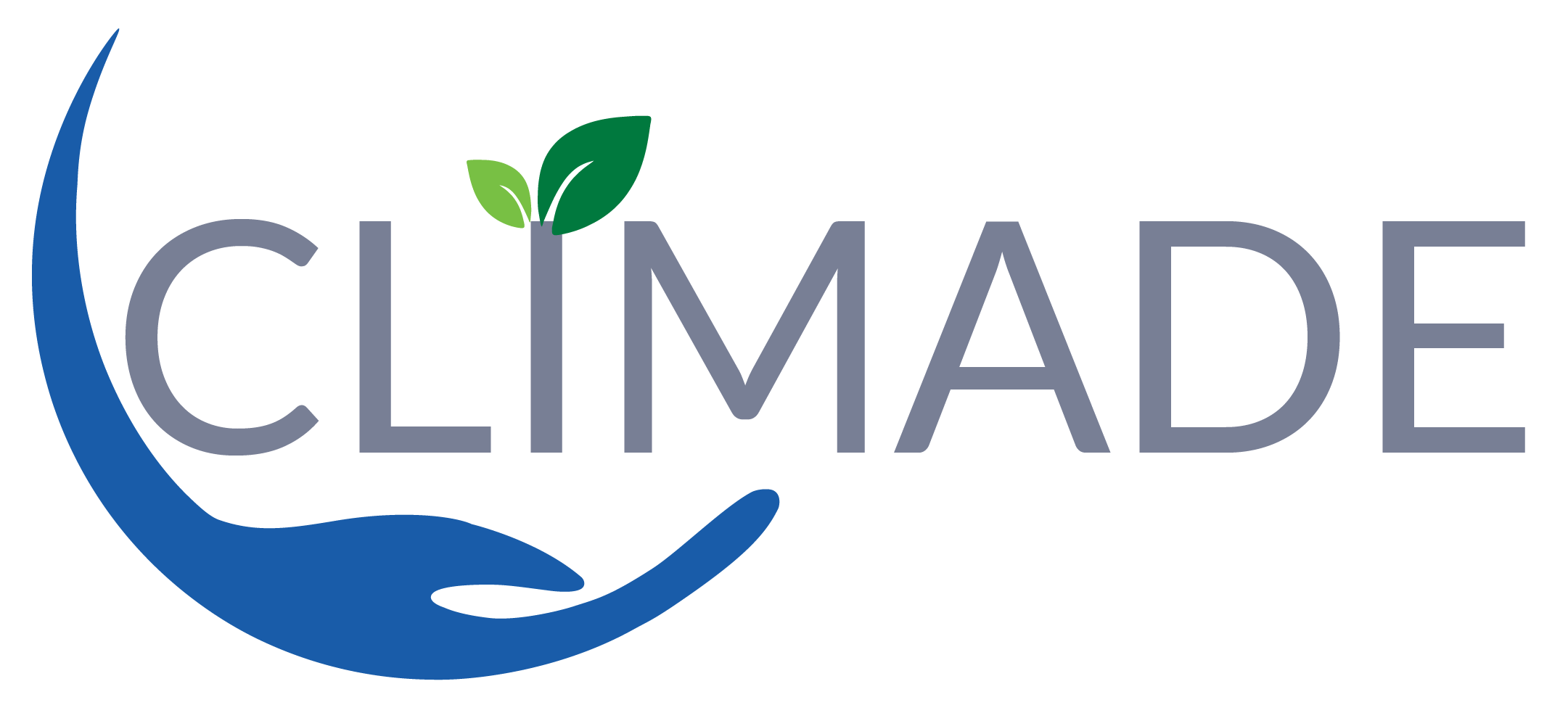our Project
EUROPE

For CLIMADE Europe, the overarching long-term goal of CLIMADE is to predict, track and control diseases and epidemics that are amplified by human-caused climate change in the most affected countries in the world. CLIMADE will leverage the medical, scientific, and public health experience of epidemiology, ecology and evolution in the global south to establish a robust disease surveillance system, with which to quickly identify pathogens and track their evolution and spread. CLIMADE Europe will support the African, Americas, Asia and Indo-Pacific with the development of analytical tools for data analysis and epidemic response. The specific aims for CLIMADE-Europe are to:
Aim 1. Develop modelling capacity of climate sensitive diseases
Develop integrated data platform bringing together satellite (housing, urbanization), human behavioral, climate, climate extreme event data from IBM-PAIRS/IBM Research Africa
Organize workshops working together with Africa scientists
Model future distribution of climate sensitive diseases and associated burden using a variety of digital and routine surveillance data
Aim 2. Global transmission dynamics of arboviruses
Leveraging the Global.health consortium based between Oxford and Harvard University to develop capacity to perform integrated analyses of climate (satellite and others), disease occurrence, genomic, and mobility data.
Estimate the risk of disease importations and persistence from within and outside of Africa, Asia and Americas using flight passenger data.
Collaborate on phylodynamic global analysis of dengue, chikungunya, and zika outbreaks.
Collaborate on global analyses with the aim to inform strategies for local control in urban settings.
Aim 3: Connect arbovirus initiatives in Europe and globally
Link to existing networks characterizing arbovirus spread in regions yet to become endemic (e.g., European Horizon 2020 programme MOOD, DART)
Aim 4: Distribution of risks of transmission (join vector distribution and transmission potential estimations)
Updating current methods that use these two sides of the coin individually (i.e. that estimate mosquito and viral potential independently) do a method that uses both sides of the coin together.
Aim 5: Quantify which regions of the world has suffered more or less from climate change by looking at how risks of transmission through time has increased or decreased over time) i.e. identify spatial hotspots under climate stress.
Contribute to the discussion of both positive and negative effects of climate change on infectious disease.
CLIMADE ACTIVITIES IN EUROPE
Impacts of climate change-induced human migration on infectious diseases
Collaborators: Houriiyah Tegally, Stellenbosch, South Africa & Moritz Kraemer, Oxford, UK Summary: Health consequences arising from climate change are threatening to offset advances made to
Robust and scalable computational pipelines for the joint analysis and sharing of genomic, epidemiological, and spatial data
Collaborators: Houriiyah Tegally & San James, Stellenbosch, South Africa & Moritz Kraemer, John Brittain, Joseph Tsui, Oxford, UK Summary: GRAPEVNE (https://grapevne.readthedocs.io/en/latest/) is an interactive environment
Impact of climate related human migrations on the establishment of arboviral disease transmission in Africa through 2100.
Collaborators: Houriiyah Tegally & Monika Moir, Stellenbosch, South Africa & Moritz Kraemer, Oxford, UK Summary: Climate change will continue to cause major disruptions to human
Natural climate variation predicts Aedes aegypti population dynamics
Tarek Alrefae (UK), Uri Obolski (Israel), José Lourenço (Portugal) Over the last 5 years we have been successful at developing modelling tools that can predict
Historical climate-stress on West Nile virus transmission potential in Portugal
Martim Geraldes (Portugal), Mónica Vieira Cunha (Portugal), Uri Obolski (Israel), José Lourenço (Portugal) Transferring knowledge from another activity where the suitable ecological backgrounds for West
Historical climate-stress on dengue virus transmission potential across the globe
Taishi Nakase (USA), Uri Obolski (Israel), Marta Giovanetti (Italy), José Lourenço (Portugal), Tulio de Oliveira (South Africa) Recently we generated and made available a large
Estimating suitable ecological backgrounds for West Nile virus on the island of São Tomé
Martim Geraldes (Portugal), Mónica Vieira Cunha (Portugal), José Lourenço (Portugal) There is no evidence for West Nile virus (WNV) transmission on the island of São
The ecological backgrounds of historical West Nile virus transmission in Portugal
Martim Geraldes (Portugal), Mónica Vieira Cunha (Portugal), José Lourenço (Portugal) There is historical evidence for West Nile virus (WNV) transmission since 1979 in Portugal. However,
Description
initial Project
Description
Objetive: Develop of analytical methods
Location : Europe to support African, Asian and American programs
Principal Investigators : Prof. Moritz Kraemer (Oxford, U.K.), Prof. José Lourenço Univ of Lisbon, Portugal)
Project start : 2023 January
Project finish : 2024 August
Value : $1m (funded by Rockefeller Foundation)
the result
OUTCOMES
- Short-term – Development and application of methods to epidemiology analysis to produce countermeasures, and policy decisions of public health institutes and ministries of health.
- Medium-term – engaging in dialogue with other European and Global partners to expand the network to genotype and analyse arboviral data in Europe.
- Long-term – creating sustainable capacity to identify and monitor pathogens in real time by training personnel in Europe and support Global South public health officials..
Let’s Get in Touch
Contact details
Phones: +44 7780 336170 & +44 7944 798463
E-mails: moritz.kraemer@biology.ox.ac.uk & jmlourenco@fc.ul.pt
Addresses: Peter Medawar Building, Oxford University, Oxford, U.K; Faculdade de Ciências, Universidade de Lisboa, Campo grande, Lisboa, PT
Opening hours:
Monday — Friday: 8:00 – 18:00
Saturday — Sunday: Closed
